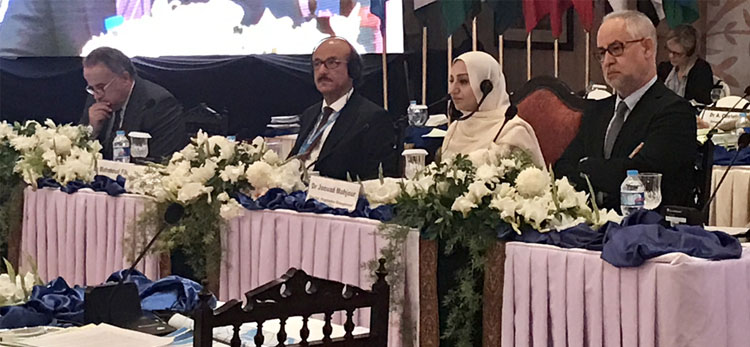
12 October 2017, Islamabad, Pakistan – Members of WHO’s Regional Committee for the Eastern Mediterranean today concluded their 64th Session, endorsing a number of resolutions that will have a positive impact on the health of populations in countries of the Eastern Mediterranean Region.
Among the topics discussed were cancer, climate change, the health of adolescents and antimicrobial resistance.
Cancer is the second leading cause of death worldwide and estimates indicate that by 2030 the Region will have the highest increase in cancer burden among all six WHO regions. In its final resolutions, the Regional Committee endorsed a regional framework for action on cancer prevention and control to scale up guidance to Member States in support of international commitments and to guide country decision-making on policy options and priority interventions for cancer prevention and control according to national contexts.
Climate change is among the biggest global health threats of the 21st century posing serious, yet preventable, effects on human health and exacerbating morbidity and mortality, especially among vulnerable populations. The Regional Committee endorsed a framework for action on climate change and health to guide the health sector response to climate change, in collaboration with other health-determining sectors, and build the resilience of health systems.
The health of adolescents has for too long been neglected, but is now being recognized as central to the achievement of the Sustainable Development Goals. The Regional Director expressed support for the Health-in-all-Policies model and described the global school-based student health survey, designed to help countries measure and assess the behavioural risk factors and protective factors of young people as an important policy-making tool.
A resolution on antimicrobial resistance was adopted by the Regional Committee, urging Member States to develop and endorse national action plans in alignment with the global action plan, establish a high-level coordination mechanism and allocate adequate resources and develop and enforce policies and regulations to prevent purchase of antibiotics without prescription.
The next session of the Regional Committee will be held in Khartoum, Sudan, from 15 to 18 October 2018.


